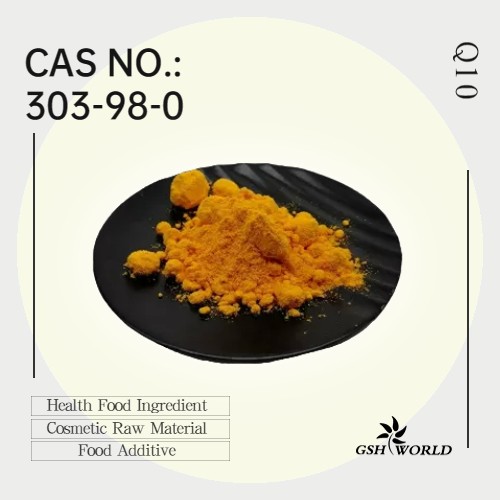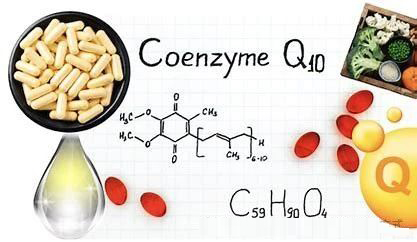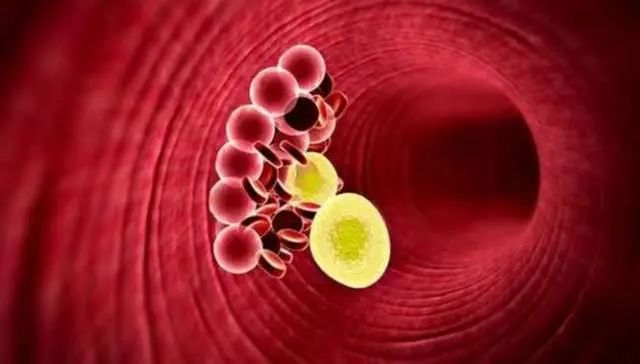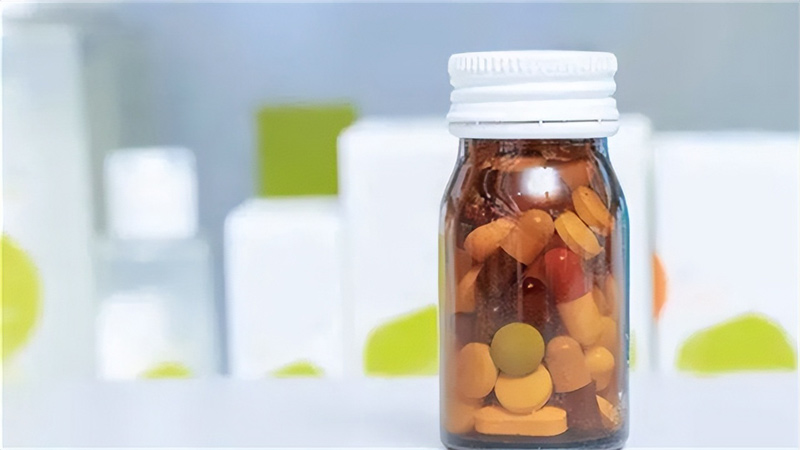Grandma Wang suffered from cardiovascular disease for many years, poor health, even short distance walking and other minor activities, will be panicked shortness of breath, bring a lot of discomfort. The hospital examination showed that the concentration of coenzyme Q10 in the blood was very low.
Although Grandma Wang pays attention to her daily diet and often eats fish, nuts and other foods rich in coenzyme Q10, the absorption effect is not ideal.
As we all know, coenzyme Q10 plays an important role in the prevention and treatment of cardiovascular diseases, and is a naturally occurring substance in the human body that is essential for cellular energy metabolism.
With the growth of age or certain disease states, the content of coenzyme Q10 in the human body declines rapidly and cannot meet the needs of the human body.

In this case, it is necessary to supplement coQ10 through dietary intake or in the form of supplements to ensure that the body’s needs for CoQ10 are met.
Reduced coenzyme Q10 is the common form of Q10 in the human body, which can be directly absorbed by the human body.
It has achieved outstanding results in the adjuvant treatment of cardiovascular diseases, attracting the attention of many professionals and patients.
Elderly people like Grandma Wang generally have weak absorption capacity.
After following the doctor’s advice and taking reduced coenzyme Q10, Grandma Wang’s physical condition has improved significantly, she can walk more than before, and her symptoms of palpitation have also reduced a lot.
Is there a scientific basis for the higher absorption rate of reduced Coenzyme Q10 than oxidized coenzyme?
Professor Peter H. Langsjoen of East Texas Medical Center in the United States selected seven NYHA Grade IV heart failure patients who received CoQ10 adjuvant therapy but whose blood concentration was still less than 2.5μg/ml to conduct a clinical trial of reduced CoQ10 as a replacement for CoQ10.
During the study, the administration of heart failure patients was changed from 450mg of Coenzyme Q10 per day to 10560mg of reduced coenzyme Q10 per day.
The test results are shown in Table 1. When oral coenzyme Q10 was taken, the blood concentration of total coenzyme Q10 in the patient was 1.6μg/ml, of which oxidized coenzyme Q10 accounted for 1.7% and reduced coenzyme Q10 accounted for 98.3%.
After oral reduction of Coenzyme Q10, the blood concentration of total coenzyme Q10 in the patient increased to 6.5 μg/ml, an increase of 303%;
The proportion of oxidized coenzyme Q10 was 0.7%, which decreased by 1%.
Reduced coenzyme Q10 accounted for 99.3%, an increase of 1%.
The symptoms of heart failure improved in all patients, from NYHA Grade IV to NYHA Grade II on average, with 2 patients improving to grade I, 2 patients improving to grade II, and 3 patients improving to grade III.

Reduced Coenzyme Q10 can significantly improve the absorption effect of coenzyme Q10 in patients with heart failure, and significantly increase the level of coenzyme Q10 in patients with heart failure.
For some people with cardiovascular disease, or congenital coQ10 absorption capacity is weak, reduced coQ10 is a better choice.
A large number of clinical trials abroad have reached similar conclusions.
For example, the team of Professor Malkanthi Evans in Canada studied the difference between the absorption of oxidized coQ10 and reduced CoQ10 (CoQH-CF) in a single dose of subjects aged >60 years.
Results As shown in the figure below, at a single dose of 100 mg, subjects taking reduced Coenzyme Q10 had significantly higher concentrations of oxidized coenzyme Q10 and total Coenzyme Q10 in their blood after 2h, 6h, 8h, 12h, 24h, 48h and 72h than subjects taking oxidized Coenzyme Q10.
The peak concentration (Cmax) and area under the curve (AUC0-72h) of total Coenzyme Q10 in plasma were 2.5 and 3.3 times higher in subjects taking reduced Coenzyme Q10 than those taking oxidized Coenzyme Q10.

From the perspective of the efficacy mechanism of coenzyme Q10, it is an electron transporter in the human body, which assumes the role of proton transfer and electron transfer in the oxidative respiratory chain of mitochondria, and promotes the process of food conversion into ATP through the process of carrying (reducing) and releasing (oxidizing) electrons.
Since the two substances can converted into each other in the body, does it mean that the final effect the same no matter which one you ingest?
What is CoQ10?
Coq10 comes in two forms: oxidized (Ubiquinone) and reduced (Ubiquinol), and these two forms can converted to each other at the level of the cell’s mitochondria to promote the conversion of ATP.

But CoQ10 must absorbed into the bloodstream before it can enter cells with the blood and participate in the respiratory chain reaction of mitochondria.
Oxidized coenzyme Q10 must converted to reduced coenzyme Q10 in the digestive system before it can absorbed.
Reduced coenzyme Q10, on the other hand, does not require additional conversion and can directly absorbed by the body.
And because the solubility of the reductive coenzyme Q10 is higher than that of the oxidized type, it further promotes the improvement of the absorption rate.
Although the two can converted into each other, only the amounts absorbed at the cellular level can converted into each other.
Since most of the oxidized coenzyme Q10 cannot absorbed by the body, and the reduced coenzyme can greatly improve the solubility of Q10 in the blood, the reduced coenzyme is a better nutritional supplement.
Especially for the elderly, heart patients and other people with weak digestion and absorption ability.
This also explains why we often feel that the treatment effect is not ideal after eating health products or drugs, and the reason is the absorption rate.
In our daily choice of health products or drugs often have a misunderstanding, that the more the dose of treatment effect will want to be better. However, the absorption rate of health care products and drugs is a more important indicator than the dose.
Coenzyme Q10 a commonly used adjuvant therapy for heart failure. Clinical data show that the concentration of coenzyme Q10 in the blood of patients with heart failure directly determines the efficacy.
A six-year clinical trial study of 126 patients with heart failure found that low levels of coQ10 supplementation were not effective in treating heart failure.
Only when the concentration of coenzyme Q10 in blood is greater than 2.5 μg /ml, the clinical symptoms and echocardiography of patients with heart failure can significantly improved.
In some patients at the end of stage IV heart failure (as defined by the New York Heart Association (NYHA)), blood levels of oxidized CoQ10 (CoQ10) remain very low, showing significant malabsorption, even when they take up to 900 mg of CoQ10 per day.
Sum up
We can form a more comprehensive understanding of coenzyme Q10 in the auxiliary treatment of cardiovascular diseases and daily health care.
Oxidized coenzyme Q10 needs to converted into a reduced form in the human digestive system to absorbed, and the reduced form of coenzyme can directly absorbed by the human body.
Human clinical data showed that the absorption rate of reduced coenzyme Q10 was more than 3 times higher than that of ordinary oxidized type.
Whether it is disease treatment or daily health care, the absorption rate of active ingredients is the key factor to determine the effect, and simply increasing the dose can not achieve the improvement of absorption rate.
For people with cardiovascular diseases and congenital poor absorption capacity of coQ10, reduced coQ10 is worthy of attention and can used as a better health care or treatment option to provide a solid barrier for the prevention and treatment of cardiovascular diseases.
References:
- 1. Malkanthi Evans, Joshua Baisley, Sonya Barss, Najla Guthrie. A randomized, double-blind trial on the bioavailability of two CoQ10 formulations. Journal of functional foods I (2009), 65-73.
- 2. P.H. Langsjoen, P.H., Langsjoen, K. Folkers. Long-term efficacy and safety of coenzyme Q10 therapy for idiopathic dilated cardiomyopathy, Am J Cardiol 1990, 65(7), 521–523.
- 3. Peter H. L, Alena M. L. Supplemental ubiquinol in patients with advanced congestive heart failure BioFactors 2008, 32, 119–128.


